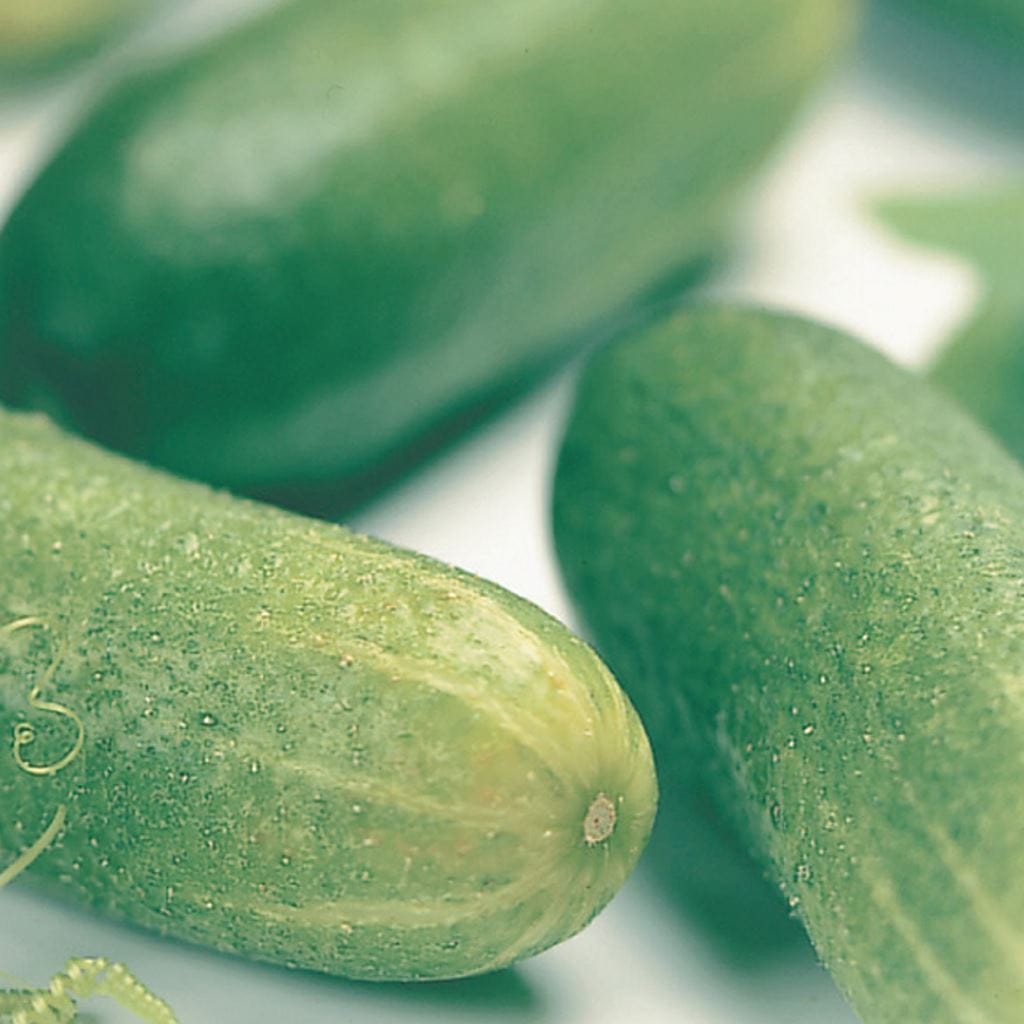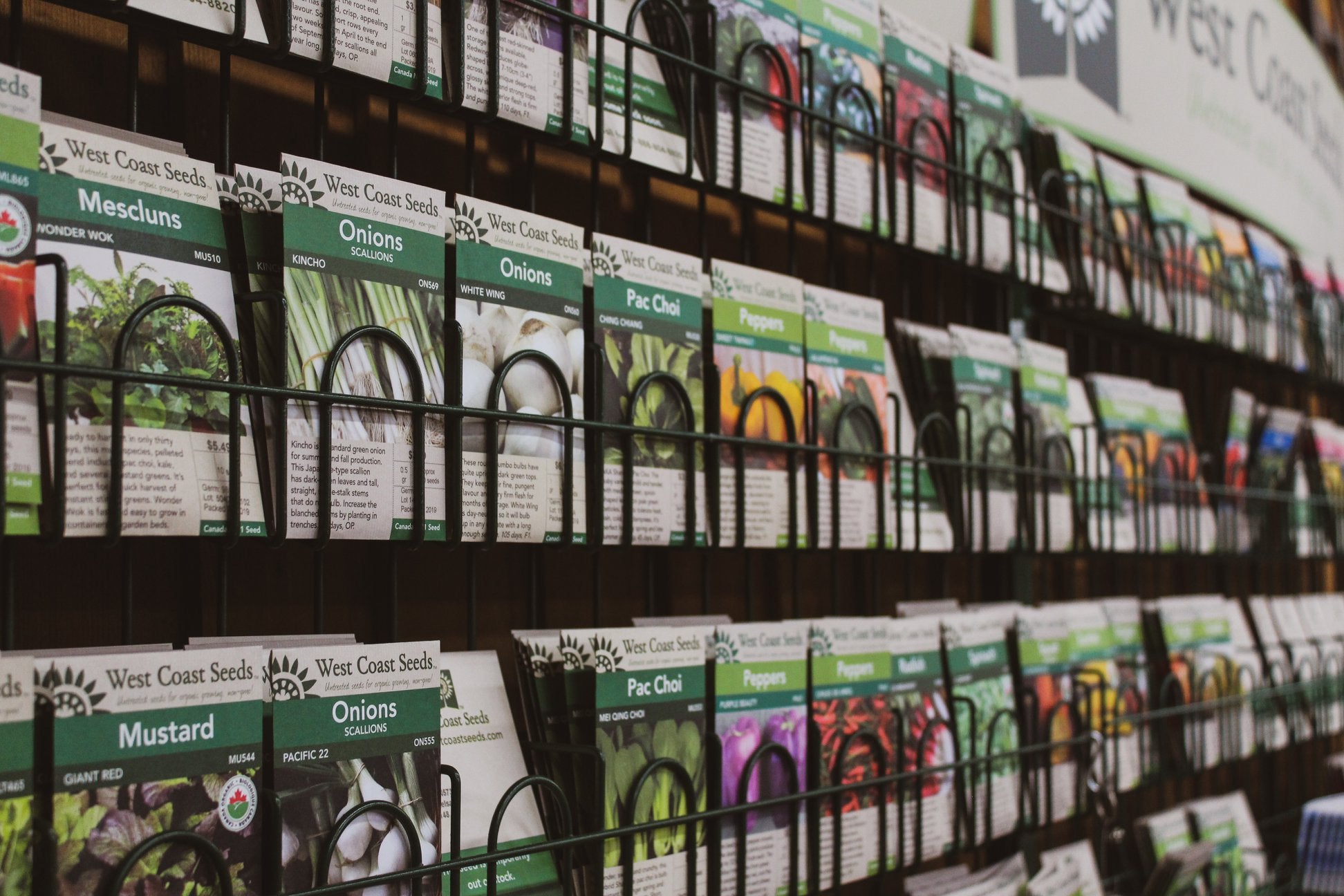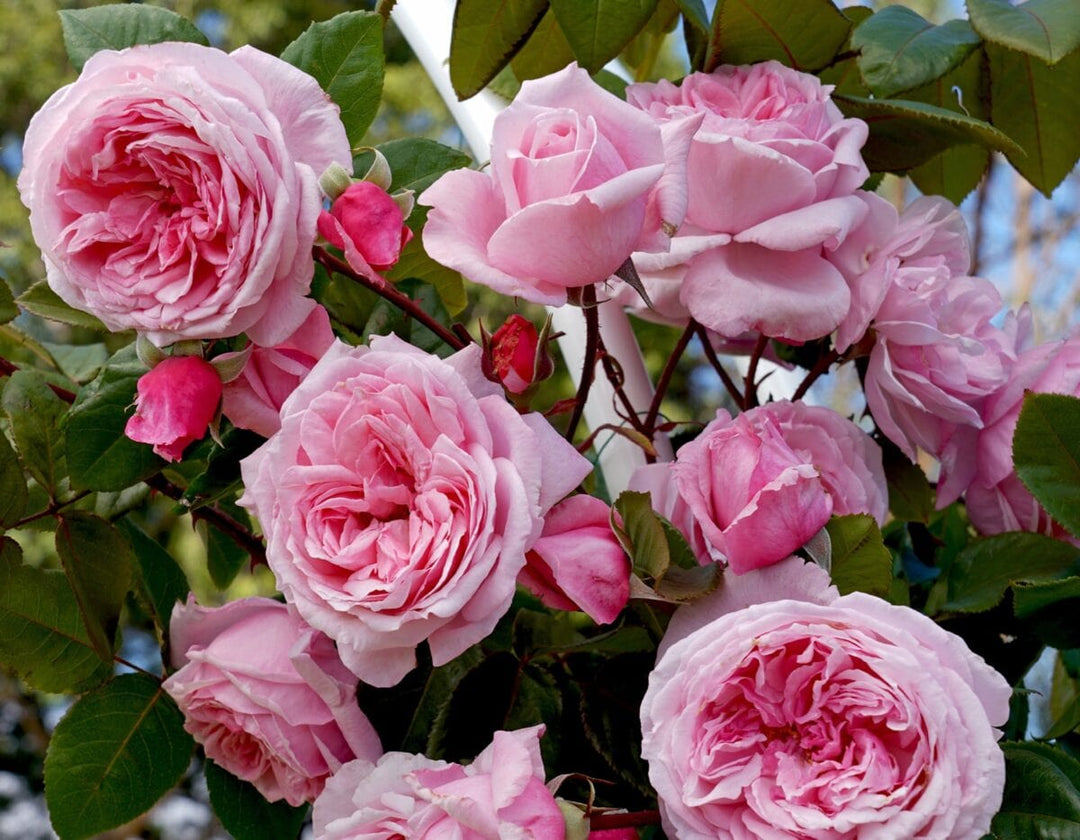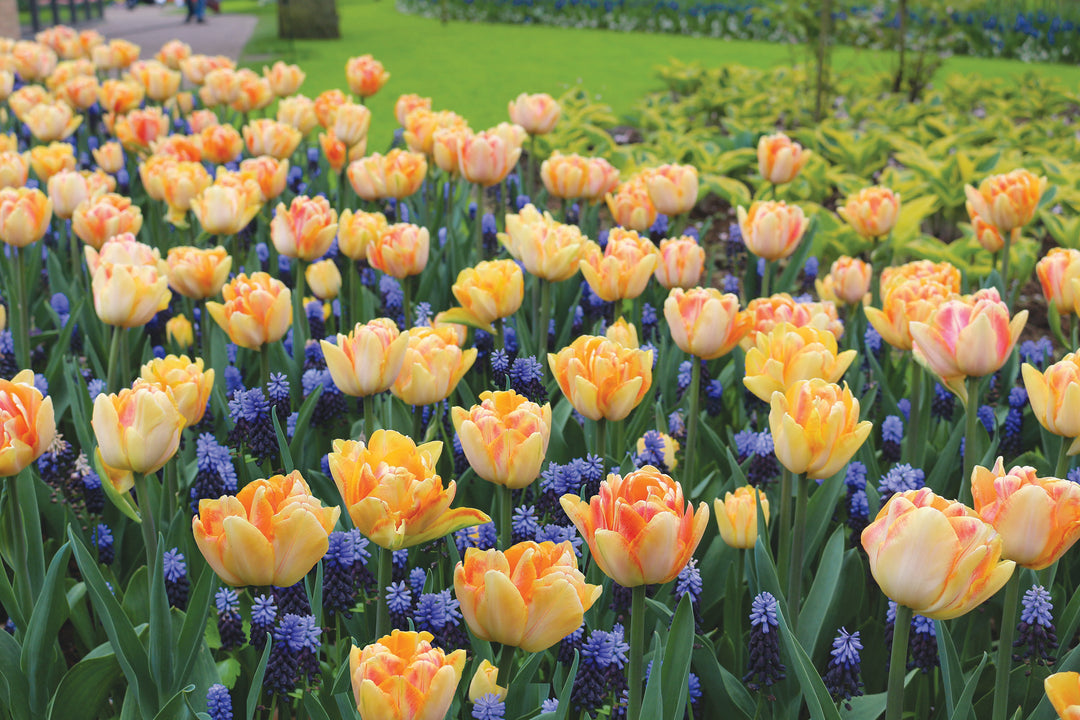
Organic Cucumber Muncher - McKenzie Seeds
- Canada-Wide Shipping
- Flat Rate Shipping on Seeds
- Secure Payment & Checkout
- In stock, ready to ship
- Backordered, shipping soon
Cucumis sativus
- Mild, sweet, crispy, and never bitter
- Non-bitter, this is a great variety for snacking in the garden fresh off the vine.
- Heirloom, open-pollinated
- Disease Resistance: Cucumber Mosaic Virus
- 8 to 10 days to Germination
- 58-65 days to maturity
An extremely tender variety which produces a very tasty non-bitter fruit. Plants are disease resistant and highly productive. Ideal for slicing or pickling.
1.5g. (Approx. 50-55 seeds)
Sow seed directly in soil once all danger of frost has passed. Soil must be fertile and rich in compost. May be started indoors before last frost. Roots should be disturbed as little as possible while transplanting.
Planting Depth: 1.3 cm (1/2")
Seed Spacing: 10 cm (4")
Plantling Spacing: 30 cm (12")
Row Spacing: 120 cm (48")
Plant at 3 week intervals up to midsummer for fresh cucumbers all season. Keep fruits picked.
Bitterness in cucumbers develops when the plant is stressed by hot, dry weather.
Raised beds are an excellent location for cucumbers and many gardeners have successfully grown them on a trellis to save on space.
Cucumbers grow vigorously and are heavy feeders. The addition of compost or well-rotted manure to the areas where cucumbers are to be planted is an excellent way to provide a good source of nutrients for these plants.
Consider planting near corn where the height of the corn shelters cucumbers from the wind and helps hold the heat which cucumbers love.
Poorly-shaped fruit is usually the result of poor pollination. For most cucumber varieties the first yellow flowers appearing on the plants are male flowers that provide pollen. These flowers normally drop off after blooming. The small cucumber is evident at the base of the female flower (even before it opens) and should develop into an edible fruit if properly pollinated. Anything that interferes with pollination of the female flowers reduces fruit set and yield, including cold temperatures and rainy weather.
Cucumbers will not cross-pollinate with squashes, pumpkins, muskmelons, or watermelons.
Campion Planting: Likes: Bean, celery, lettuce, pea, radish
Harvest and Storage
Regular harvesting from plants will give higher yields.
Cucumbers can be picked at various stages of their growing period to be enjoyed for eating and pickling.
Cucumbers Explained
English Cucumbers are long, thin, a dark green skin. Mild in flavour, English cucumbers are prized for their thin skin and minimal seeds. English cucumbers are best sliced and raw and are not good for pickling.
Pickling Cucumbers – best varieties for pickling because they are mild tasting and very firm and crisp.
Slicing Cucumbers – Good by themselves, in salads or in most cucumber recipes, slicing cucumbers have smooth skins and unobtrusive seeds.
Burpless Cucumbers – Varieties that are less acidic and therefore tend to cause less indigestion for people prone to it.
Space Saving Cucumbers – bush variety cucumbers can be grown in containers or in the ground
Beit Alpha Cucumbers are parthenocarpic, all-female multi fruited hybrids that do not require pollination and offer a tremendous yield potential. These varieties should not be planted side by side with standard varieties to prevent cross-pollination and seed development. Cool Breeze Cucumbers are another type of parthenocarpic variety.
Cucumber Genetics
Cucumbers and other vine crops are monoecious. Monoecious plants have separate male and female flowers on the same plant.
Gynoecious varieties are special hybrids that produce predominantly female flowers. Seeds of a standard monoecious variety are commonly included in the seed packet (dyed) to ensure adequate pollination.
Parthenocarpic cucumber varieties develop fruit without pollination. As a result, the non-fertilized fruit does not contain seeds. Parthenocarpic varieties must be isolated from standard varieties to prevent cross-pollination and seed development.
Cucumber varieties may cross with one another. However, the quality of this year’s crop is not affected. (An exception is the cross-pollination of parthenocarpic varieties with standard varieties.)
Canada Shipping
All regular packaged seed* orders have a flat rate shipping fee starting at $6.85 for Letter Mail shipping and $14.85 for Expedited Shipping.
*Some Bonus Packs, Sprouting Seeds, Bulk packs, Sprinkle Bags, and Sprinkle Cans will only be available with Expedited Shipping due to larger packaging and weight.
US Shipping
US Shipping has been suspended indefinitely. We apologize for any inconvenience this may cause. We hope to serve our US customers again in the future.







